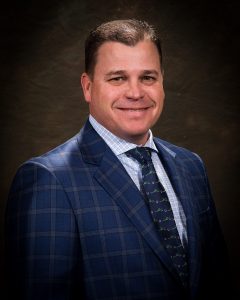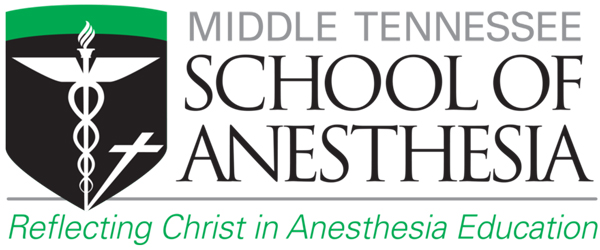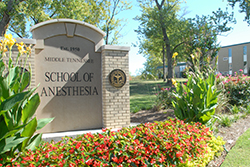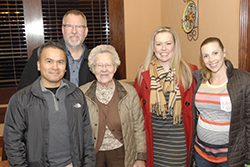Stace Dollar discusses opioid research
October 14, 2022
 MTSA’s latest issue of the Airways newsletter features a synopsis of research by MTSA graduate and Acute Surgical Pain Management Fellowship faculty member Stace Dollar, DNAP, CRNA. His research was recently published in the Journal of PeriAnesthesia Nursing and represents one of the ways MTSA’s focus on acute surgical pain management and opioid-sparing interventions supports and promotes student scholarship that helps fight the opioid crisis.
MTSA’s latest issue of the Airways newsletter features a synopsis of research by MTSA graduate and Acute Surgical Pain Management Fellowship faculty member Stace Dollar, DNAP, CRNA. His research was recently published in the Journal of PeriAnesthesia Nursing and represents one of the ways MTSA’s focus on acute surgical pain management and opioid-sparing interventions supports and promotes student scholarship that helps fight the opioid crisis.
Here’s more from our extended conversation with Dollar:
MTSA: How did you decide on this topic for your research?
Dollar: One of the motivations for conducting this research is the fact that the opioid epidemic has become personal to so many people, myself included. Whether it’s family members or friends that have been affected, it’s an important issue that many of us in the medical field are trying to address and solve.
MTSA: Was there anything that surprised you during this process?
Dollar: During the research, I was surprised to find the sheer number of opioid-related deaths reported every day. One recent statistic is that between 2000 and 2019 opioid deaths increased by 255%. Because my research dealt with opioid disposal education, I found it interesting to examine how we as nurses educate patients every day – whether it’s “passive education” where we print information and hand it to the patient, or “active education” where we sit down and explain it to the patients. Another factor is the timing of the education which is usually either pre-operative or post-operative. One thing that I found in the research is that there’s no consistency in opioid disposal education. Many people are unaware of proper storage and disposal so unfortunately they keep them in their medicine cabinet, and that’s how a lot of people have their first exposure – finding them in a friend’s or family member’s medicine cabinet.
MTSA: What outcomes do you hope to see as a result of this research being published?
Dollar: I hope this research has an effect on best practices in terms of educating patients about disposal. In one study I found, the anesthesia provider provided “active” opioid disposal education which resulted in a 74% disposal rate. If we provided consistent active opioid disposal education throughout every phase of care, disposal would become a norm. Also, I believe these rates would be even higher than 74% and have an impact on the opioid epidemic.
MTSA: What other insights did you gain about opioid disposal through your research?
Dollar: Another hurdle in opioid disposal is the patient’s fear of future pain, which causes them not to dispose of their opioids. Patients have many reasons for retaining their opioids. It could be that they have experienced significant pain in the past, or could be that “just in case” they need it for some other form of pain, they decide to hang on to their opioids. Other forms of pain could be the simple headache. I really think fear of future pain would be an important topic for a future study.
MTSA: How did your connections and education at MTSA inform your research?
Dollar: My education at MTSA has played an important role in this research. Starting several years ago, my enrollment in the Acute Surgical Pain Management Fellowship helped set this in motion. John Edwards and I had this vision for research on disposal since the time we were in the Fellowship, and in our doctoral program at MTSA, Dr. Halle Evans and Dr. Bill Johnson were a huge factor in leading us towards our goal. John and I had published a few articles with a group from the research department at our facility, but we had never actually written a paper start to finish. Dr. Evans and Dr. Johnson were instrumental in that, teaching us not only how to review research but also how to create it, write it and publish it. And our co-author Dr. Jan Odom-Forren has been at the forefront in working on the opioid epidemic and my content expert on this project.
Learn more about MTSA’s Acute Surgical Pain Management Fellowship at https://mtsa.edu/fellowship








